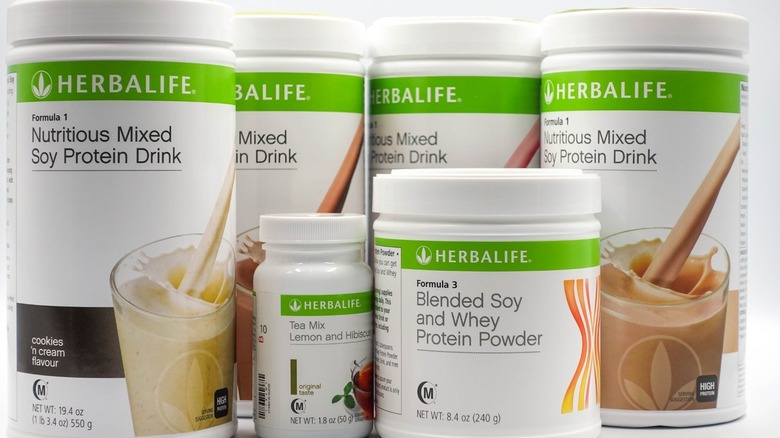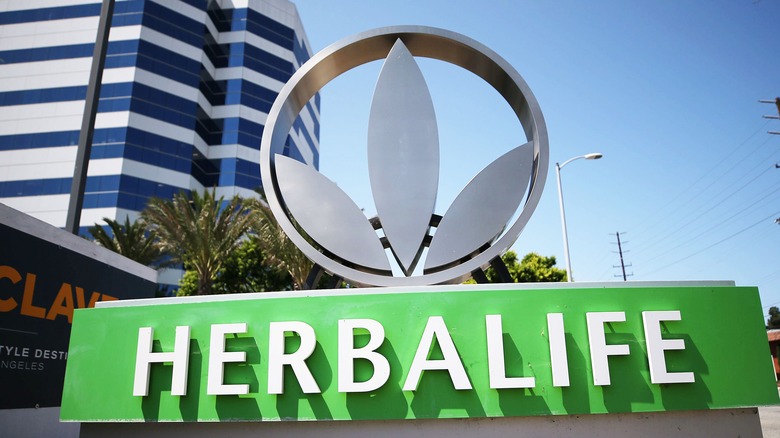Why Some Customers Are Calling Herbalife 'Nutrition Clubs' An MLM Scam
For those who aren't "with it" and still insist on using the phrase "with it," the trend of loaded teas emerged a few years ago (via CNET). Specifically, loaded teas are colorful energy drinks that promise to fill you up with caffeine and vitamins without the sugar of an energy drink or an adulterated cup of coffee. Their biggest selling point might be that they look nice on Instagram.
Some have questioned how healthy the caffeine doses that loaded teas deliver really are. However, a more recent point raised by Eater's Amy McCarthy is that the entire trend is built upon a multilevel marketing scheme. Loaded teas, she explains, are sold at self-styled nutritional clubs. These clubs operate under a variety of names. But more often than not, they order their ingredients from Herbalife, a multilevel marketing company that peddles supplements. Further investigation revealed that members of the clubs or consistent customers get recruited to buy and sell loaded teas. Then, they are encouraged to form their own clubs. This is the basis of a multilevel marketing business: to sell your merchandise to another person so you can pay whomever you bought your ingredients from.
If that sounds like a pyramid scheme, it isn't. Legally speaking, multilevel marketing differs from a pyramid scheme in its purpose. The Balance explains that a pyramid scheme is to con people while multilevel marketing wants to create a large network of distributors so that sales will be higher.
Herbalife has received previous wrist slaps
Despite not being a pyramid scheme, Herbalife has come to the attention of the federal government a couple of times before. In 2016, Reuters reported that Herbalife paid the government $200 million and altered its business model so that it wouldn't count as a pyramid scheme. The FTC still noted that most of the distributors in Herbalife's network either make no money or make next to nothing from their "investment." The money was intended to go to the distributors who had suffered due to the company's business model. Part of its restructure involved no longer using recruitment as the company's metric of success and focusing instead on supplement sales.
However, according to distributors who talked to Amy McCarthy, distributors can sell $100,000 worth of products in months but still be left with no money (via Eater). This is in part because Herbalife does not offer the same "deep discounts" to distributors who buy in bulk that other companies do. So, Herbalife arguably treats its distributors as the main source of money, not the people who buy from the distributors.
In 2019, Herbalife paid $20 million after facing allegations that it lied about its business model in China, which does not permit multilevel marketing, per Reuters. However, the company made no admissions of wrongdoing addressing those charges. While its operations in the U.S. are technically legal, some distributors feel the company works to their detriment.

